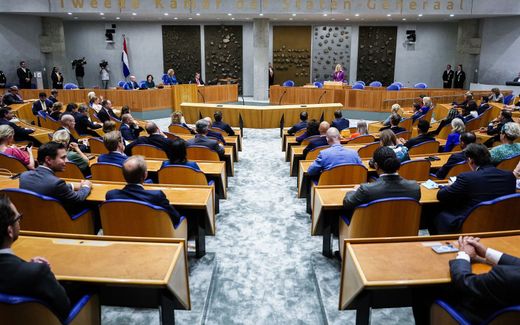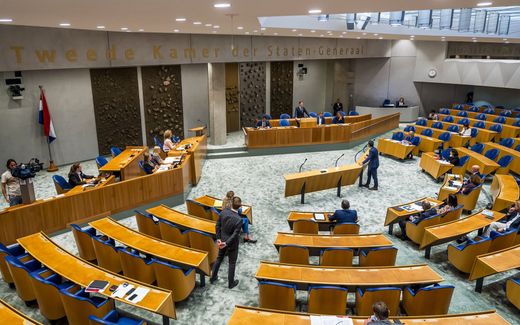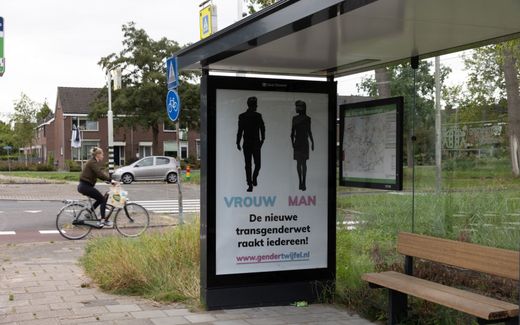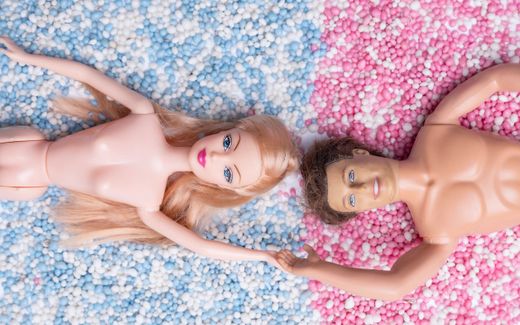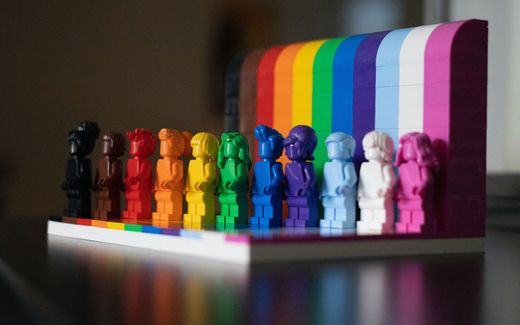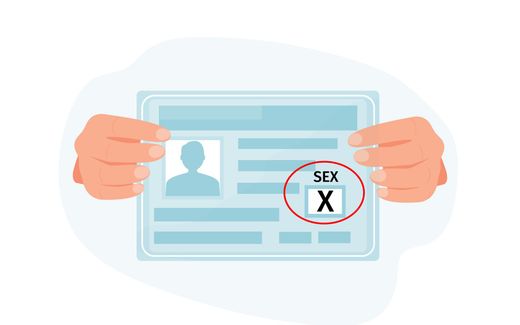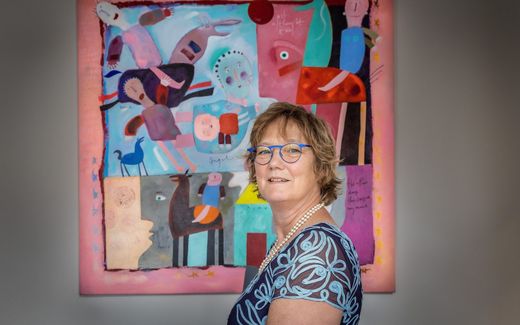Anne is happy that she did not go for gender reassignment
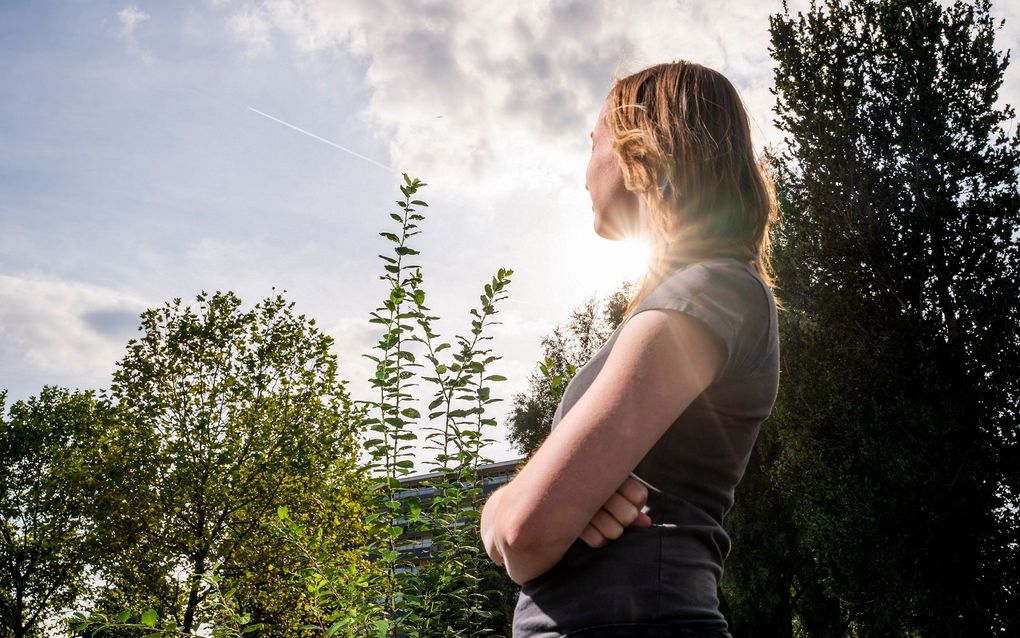
Photo Cees van der Wal
Christian Life
As a girl, Anne loves to romp. A dress makes her "unhappy", even now. At 25, she realises she hais transgender feelings. She does not transition, even though a doctor says that is the best solution. "My life is a successful non-transition," explains the now 28-year-old. "I went through a very tough time, but I came out of it well."
"I am the eldest in a family of four children in Dutch polder Alblasserwaard, near Rotterdam. I was always a tough kid. Climbed into everything, never played with dolls and pulled the pacifier out of children's mouths. It was nice to play school and romp in nature with friends. Later, I went into martial arts and had cool hobbies. "Shush," my aunt warned when a cousin once said to me, "You're just like a guy." He was not allowed to say that. At my Christian primary school, I was asked if I wore trousers at home, as it was the school rule that girls wore a skirt. I was always unconsciously sitting wide-legged.
Around the age of 17, I felt trapped in class. I found it hard to connect. The girls were busy with make-up and other things concerning their appearance. That was not my thing. Meanwhile, I went to the Christian Hoornbeeck College in the Dutch city of Rotterdam and often withdrew from the group. Now I wonder why no teacher ever asked me, "Are you all right?"
After transferring to a vocational study that combined work and school, I slowly formed a circle of friends. But I did not give myself to others. When I cried, I did so alone and did not involve anyone in my grief. I got stuck more and more but didn't know why. I wanted to join the army, to protect the vulnerable with strength. But I lacked that strength as a woman. Around that time, I was counted out for one week every month because of my periods. It was as if a knife had gone through my stomach. Each time, I patched myself back up and carried on. I knew that didn't work in the army.
Three years ago, I went to a doctor. All kinds of medical solutions followed, but none of them worked. I became increasingly aware that I am different. That I cannot do many things because I am a woman. The penny dropped when I watched a fight film. Seeing a tough guy on screen made me cry. That's how I wanted to be. If I were a man, everything would be so much easier.
Disturbed hormones
I realised I had to do something with my grief. So many tears when you see a tough guy; that is not healthy. I knew vaguely about transgender people but did not link it to myself. After much hesitation, I contacted a transgender foundation. I asked for a checklist. A transgender man took all the time I needed. He taught me that hormone imbalance in the womb could cause gender dysphoria in the foetus. That was an important moment for me. The idea of a biological explanation for my feelings gave me space. A physical cause is something tangible. My sister has been missing an organ since birth - and I have got this. All the emotions came out; I had so much grief. It was too sensitive to talk about it with others. When I wanted to inform my parents, I mostly cried.
In my conservative Christian environment, not everyone takes this issue seriously. You have talked yourself into it, is the usual thought. I understand that it is hard to imagine. Yet it is striking that it is precisely the secular world that is making this subject discussable. That should have started in the church.
I always thought I should not get worked up and just move on. I had suppressed my feelings all these years, and it felt like an explosion was now following. It was hard to see myself in the mirror or take a shower. I am not a woman with male characteristics; my problem goes deeper. If I knew from God that a gender transition was justified, I would have gone down that path. I just did not know how to make it suitable for myself. I also realised that a transition would be drastic. It was too much for that moment.
I noticed at the same time that the gender dysphoria diminished. Something changed because I acknowledged the feelings, dealt with them and allowed the grief. So that alone already gave me peace of mind. Now things are going so well that I am glad I did not transition. I have a good, positive life. Gender dysphoria is only there in the background.
No surprise
I feared that my friends would think I was crazy. That's quite harsh. If someone told me a story like this, I would not think so myself. To my relief, each of them said, "It is no surprise; to me, you just remain the same as you are." They did not approach me differently.
Meanwhile, my monthly pain became more and more intense. As soon as I got back on my feet, I lived with the idea that the pain would be there again in three weeks. That limited me in my abilities; many things I could no longer do. When I visited a gynaecologist, all I did during the first conversation was cry. I had talked to a few people about my gender dysphoria. I wanted to get rid of my uterus. I never wanted children, and the monthly pain was too much. The gynaecologist who gave a second opinion listened very well. He also pushed me towards transition, thinking that was the only good solution he had for me. He had previously worked in transgender care.
I have seen that doctors really want to help you. But they hear stories selectively: from those who have revived by hormones and medical procedures, but not from those whose feelings have diminished while not transitioning. At the time, I would have liked to have heard about the latter group.
Uterus removal is not a minor procedure. I delved into the pros and cons and started putting my thoughts on paper on the advice of a psychologist. Medically, there was no other option. It later turned out that an abnormality in the uterus was causing the pain. It has now been over six months, and I find that life has become easier. Only now do I see how hard it was.
No one ever told me that feelings of gender dysphoria could be lessened. I always suppressed them, but that only made things worse. At first, the handbrake was on for 80 per cent of my life, as if I could not move forward. Now it is only 20 per cent. I sank deep. It took a long time for me to believe that I am just allowed to be there, that the pain and anger are allowed. Facing your feelings is healing, and they gradually diminish.
Choice
In her book "The Choice", Holocaust survivor Edith Eva Eger writes about dealing with adversity that you have a choice in it. She says a problem can give you more than what it costs if you keep looking for the gain. That has helped me. I have had all this pain; now, I want to deal with it positively. I have already paid the price. What is the profit?
I started to reconsider certain things in my life. I am grateful that my parents raised me with the church and faith. I know God exists, but I had phases when I struggled to believe. I had clenched fists, had been bitter and disappointed. Why was I created this way? I could not see through the pain. We do not talk about these things much in Christian circles.
In society, transgender people are labelled. They face positive discrimination today. Yet being a victim does not help. For me, it has been essential to have openness and understanding. No one chooses their problem, whatever it is. You do not become less worthy if you suffer from something. There are others who are there for you and see you as they see every other human being. Sometimes these people live closer to you than you think; if not, you will find them. A problem always seems much bigger than you are. Still, you become stronger and eventually bigger than your problem when you confront it.
What helped me was building a routine in my life. Liberating was also changing my questions. Change "Why do I have this?" into: "How can I make the most of it now?" It is crucial if you have a life purpose in doing so. My ideal is to be meaningful to people who are literally fighting for survival right now. I thought of them on difficult days and carried on - for them.
I am now 28 and have almost completed my college degree in psychology. Without gender dysphoria, I would probably have been in the army now. Still, maybe with my baggage, I can help more people now than if I were in the military. My pain is now in my backpack, and I am living again."
Annes name has been anonymised. Her name is known to the editors.
This article was translated by CNE.news and published by the Reformatorisch Dagblad on September 24
Related Articles


